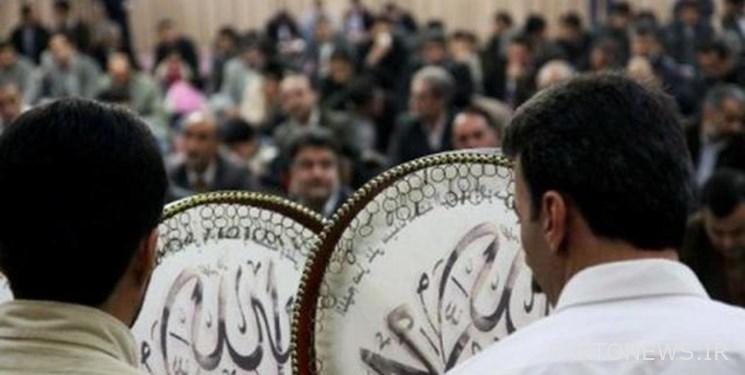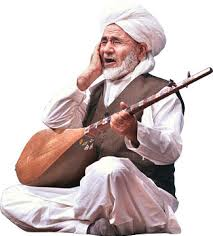Review of Ramadan songs / “Zekarkhani” is one of the most important melodies of the month of God’s Feast

Fars news agency – music group: Rituals, traditions and music related to them are an inseparable part of the tribes and indicate the culture and beliefs of the people, and throughout history, sometimes with a little change and sometimes without any change, they have been passed down from breast to breast to the next generations.
Due to being rooted in people’s beliefs, religious and religious occasions and rituals are more important and sensitive than other customs and traditions, and therefore changes in its core are difficult to make, of course, in its shell and surface according to the social situation and The economy of each region changes.
Ramadan is one of the special months in the Islamic world and Iran, which has special customs and traditions, and the impact of these customs on different behavioral, social and cultural layers of people is evident in this month.
* Special performance of art in the holy month of Ramadan
Good morning and iftar music is one of the most beautiful memories that every Iranian Muslim has in his mind from the month of Ramadan. The spiritual music of this month makes the heart fly and polishes the soul.
In this month, under the influence of Ramadan culture, art and artist find a special function, whose executive structure can be recognized and identified compared to other sectors, and music as one of the important branches of art and the carrier and carrier of a part of the historical heritage and human society. In this month, Iran has a special birth certificate.
Sometimes a person utters melodious words between himself and his creator in an individual way, as an example of the decreed word “Aqra”, which we know as “Dhikrkhani” and “Manajatkhani” and “Hamdkhani”.
* Neglected in retrieving, recognizing and planning religious songs
Everything that expresses the spiritual and religious issues of man with the language of music in a correct and weighty way becomes religious music, which we in Islamic Iran have neglected to recover, recognize and plan about for today’s society and the future generations of this system.
Aziz al-Din Nasfi, one of the prominent mystics of the 7th century of Hijri, described the rituals of zikr in his time as follows:
When the dhikr is going to say dhikr, he must first renew his purity and perform ablution and then turn to the Qibla and start dhikr. Some have said: He should not sit in a square while reciting the zikr, as this is more comfortable.
Ramadan music includes salawat chanting, zikr chanting, basmillah chanting and manqbat chanting, as well as manajat chanting, dawn chanting, Ramadan night chanting, dawn singing, dawn prayers and dom dom sahri are various names that are sung to this type of chanting at dawn time in every region.

* “Reciting” is the most important feature of Ramadan
“Reciting” is the most important feature of Ramadan music. An art that has different forms and its purpose is to strengthen the spiritual power and lead the fasting people towards goodness and goodness. Iranians used to perform zikrs for the month of Ramadan with melodious songs and musical instruments to lead them towards goodness and purity with sacred and spiritual words and sentences.
However, unfortunately, today there are only a few reciters left in different regions of Iran who do not mention them.
Mozaffar Shafiei, a veteran singer of Iranian music, says: Ramadan music should be related to God and worship, this type of music can be performed by any instrument. Of course, many believe that Ramadan music should be performed vocally, while we can also use instruments to make this type of music more fruitful.
* Special readings for the nights of Qadr
Ramadan music in Iran was full of joy because it tried to bring people closer to spirituality. The only sad poems that were recited in this month went back to the days of Ali bin Abi Talib’s murder. “Manqbat-khani” was special in Qadr nights and was sung in the mourning of Ali bin Abi Talib, in the middle of Ramadan there were also Mawlid-khani and Hosni prayers. “Salawat-khani” was not only dedicated to the month of Ramadan, but it was performed more beautifully in this month, and in some cities such as Dezful and Shushtar, there was even happy salat-khani.

In the nights of Qadr, beautiful changes in the tunes and poetic themes appear in the songs, sadness and the state of supplication in the tunes increase, for this reason, the morning prayers are more towards Naat, Madh and Mangbat.
* Benefit from Iranian music’s instrumental songs in Ramadan tunes
In these nights, vocal types (which it is better to call vocal styles) were performed in the form of dhikr reading, dua reading, manqbat reading, maqtal reading, prayer reading, rosary reading, lamentation reading, lamentation reading, Qanbar reading, etc. All forms of religious songs, especially Ramadan songs, have benefited the most from Iranian vocal and instrumental music.
Zikr has a special place in Iranian devotional music, and due to the diversity of its themes, it has a wide category. Praying is a combination of singing prayers and invocations in the form of songs and sentence requests, most of the whispers and mentions of which are close to the device of Shur.
* Dawn songs reach their peak mostly in Ramadan and in the nights of Qadr
Ramadan provides special moments for man to be alone with himself and God. There are more night prayers and dawn songs in this month and it reaches its peak in Qadr nights. Praying has certain customs, such as choosing the time and place, intervals from midnight to dawn, and a place where one can be alone, because praying in secret preserves the sincerity of the presence more.
*Spiritual transcendence is the main theme of the performance repertoire of the late Derpour
Zindayad Nur Mohammad Darpour, a well-known local musician and singer, is different from most artists of his generation because he considered the mystical side of it and had strong religious beliefs. In his performances, which are mostly based on religious praise and praise, he always starts his performance with the name of God and blessings on Muhammad and his family. The late Darpour considers music only for excellence in spirituality and does not include anything else in his performance repertoire.
Mohammad Farooq Darpour, the living son of Noor Mohammad Darpour, who is a musician and dotar player himself, and after his father’s death took charge of the mystical music group “Anwar Torbat Jam”, says about his father’s moral and artistic qualities: My father always supported the artists of music and Those who were looking for mystic music, he advised them to take Islamic matters seriously and to cleanse themselves from evils by performing obligatory acts such as prayer and fasting.

*Ramadan songs are a mixture of art, aesthetics and love for the unique creator
The last word is that today, more than ever, we need to preserve and spread songs like this, which is a mixture of art, aesthetics and love with a unique creator. The importance of this category is felt more when these days, with the influx of foreign media, music, and cultures, we see its negative impact on the beliefs of the young generation. As much as this generation has more connection with cultural and religious values and the center of the family is the bed of such a space, the youth has reached adulthood with a more refined soul and spirit, and the direct effects of spiritual culture in the education of such young people are evident. And equally, the moral, intellectual and spiritual liberation of the youth has led to disobedience and distance from spirituality and religious, national and human values. Therefore, valuing one’s own culture and absorbing spirituality will be beneficial in this world and in the hereafter.
end of message/

